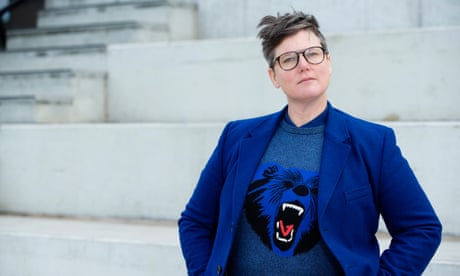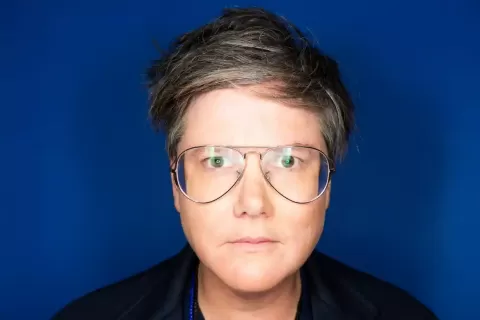
Even as a child, the comedian knew her brain was atypical. But it was only in her late 20s that her anxiety, depression and meltdowns finally made sense
ou don’t have to be an expert to know that people with autism don’t get to speak about their own experiences. Until very recently, autism has largely only been understood through the prism of the experience of parents and as a list of observations that mostly neurotypical medical professionals have made and assigned meaning to.
The myths around ASD (autism spectrum disorder) have wasted enough of my life, so I don’t really want to waste any more of my time thinking about them, much less writing them down. But as the myths are so firmly embedded into popular (mis)understanding, I don’t have the luxury to skip over them, so it is just a sad reality that I have to waste even more of my time to bring many of you up to speed.
For a long time, I worried that I’d been misdiagnosed. It was difficult to believe that I wasn’t entirely to blame for my life being such a painful struggle, because I was so used to assuming I was a bad person. It took me a long time to get brave enough to simply share my diagnosis. My experience did not match the popular understanding of autism, and I knew I had to become an expert in neurobiology in order to untangle the myriad myths surrounding autism – just to beg permission to claim that piece of my identity.
Sign up to our Inside Saturday newsletter for an exclusive behind-the-scenes look at the making of the magazine’s biggest features, as well as a curated list of our weekly highlights.
I was right to be cautious, because when I finally did start telling the world of my diagnosis, the dismissals came thick and fast. I was told I was too fat to be autistic. I was told I was too social to be autistic. I was told I was too empathic to be autistic. I was told I was too female to be autistic. I was told I wasn’t autistic enough to be autistic. Nobody who refused me my diagnosis ever considered how painful it might have been for me, and it got really boring really fast.
Ever since I can remember, my thoughts have been plagued by a sense that I was a little out of whack, as if belonging was beyond me. To give this feeling a story, it’s as if I am an alien who has been abandoned on Earth and left to muddle my way through life, without a reason, a mission, or any memory of home. If you are a conspiracy theorist, this is where you begin to wonder if I might perhaps be a lizard. I am not. Now piss off.
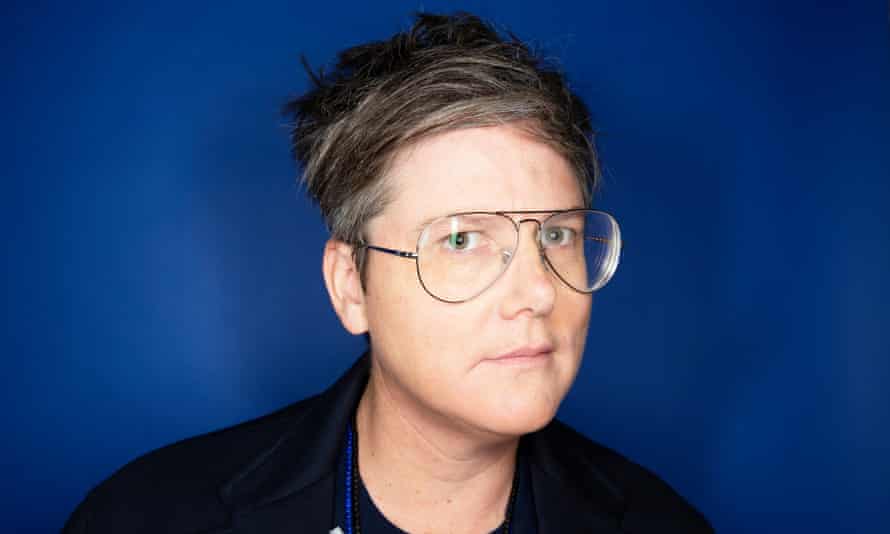
I am a visual thinker. I see my thoughts, but I don’t have a photographic memory, nor is my head a static gallery of sensibly collected thoughts that my brain curates into easy sense. It is not linear. It is fluid and flexible, kind of like a private Wikipedia that I am constantly revising and editing, but instead of words, everything is written in my own ever-evolving language of hieroglyphic films filled with hyperlinks to associated and often irrelevant thoughts. I have never managed to develop a reliable system to file and separate my thoughts into individual think pieces, and so I am utterly incapable of having one thought without at least another hundred coming along for the ride.
Further complicating this issue is the fact that my brain doesn’t work in the realm of the abstract. I’m not capable of thinking with imagery that I haven’t seen with my own eyes, which means that when someone tells me a story, I will see it as something like a film that I must edit together out of all the other films sourced from my own internalised collection. Every single day I have spent on this Earth, I have added countless images to my brain library. Needless to say, it is very busy in my head. If it were possible for someone to catch a glimpse of my thoughts being processed, they’d be hard-pressed to make sense out it. I doubt they’d even believe that the tornado orgy of wingdings and gifs was anything other than gibberish.
By the time I was middling my 30s, I was no longer living my life. I was merely coping with it, and barely
Sadly, the enthusiasm that my brain brings to the collecting of visual records is not then applied to the filing and retrieval process. And because of my inability to quickly and efficiently translate what I see into an externally communicable format, I am wired to have lots of fun and adventure in my head while at the same time failing totally, utterly and miserably at life on the outside, and feeling profoundly alone.
I believe that it is this whirl inside my brain that contributes to my occasional inability to speak. To be clear, I don’t identify as being nonverbal, but I often lose my verbal ability. Especially if I am overwhelmed by a lot of sensory information at the same time as I am trying to identify, process and regulate emotional distress. This is what is called selective mutism, which commonly exists alongside ASD, but is not exclusive to it.
When I told Mum I was autistic, she said: “Yeah, that makes sense. I always knew there was a lot going on inside you, but I just couldn’t get in. You were like a tin of baked beans and my tin opener wouldn’t work on you.” It’s a tidy metaphor, especially if you know that Mum does not like baked beans.
My childhood was a serendipitously effective buffer for the worst that my ASD threw at me. Small town. Not a lot of change. My family unit was a ready-made social network that I didn’t have to navigate cold because I was just a part of it. They looked out for me, but, because we were a big family, no one really noticed if I didn’t talk. I was the youngest, so no one expected me to be a leader. No one noticed when I would disappear for hours, and no one thought much of my habit of taking frequent naps in the linen press. I wasn’t quirky, I was just Hannah. Nobody thought I was special when I memorised every single question and answer in Trivial Pursuit. Because I wasn’t special; everyone cheated one way or another. It was only when I stepped out of the bubble of my family that things went to shit. And, gosh, to shit they went.
I struggled to grasp even the most basic of life’s skills. In my first year of primary school, I forgot to wear underpants so many times that my family started to check me at the door every morning before I left. I assumed I’d get better at stuff as I got older, but it only got worse. And the older I got, the less amused people were by me.
During my adolescence I began to find it more and more difficult to make myself understood, and that is when I developed an instinctive habit of taking the blame whenever I didn’t understand what was going on around me – which, to be clear, was all the time. This struggle persuaded me to assume that I was unlikable, and eventually I stopped thinking about the world through the lens of my own needs. And anybody who is a human knows that this is not a recipe for good times.
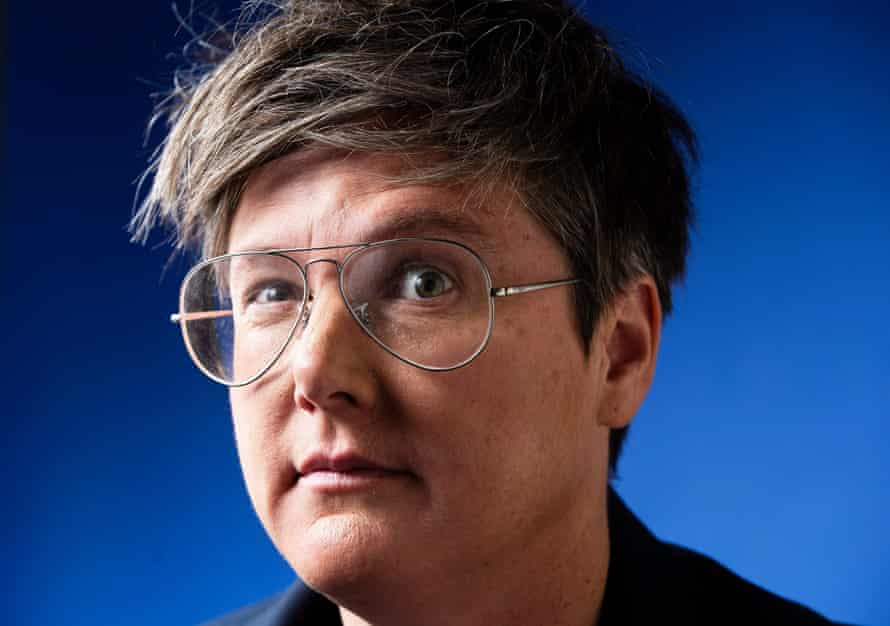
I used to fret about fitting in at school, not because I wanted to, but because I knew I was supposed to. I was at my happiest in my own company, which I took to be an abnormality. It never occurred to me that it could be the epitome of normal behaviour – for me. I was a “girl”, and girls were expected to be masters of the mingle, so I tried really hard to be normal, but it was a fool’s errand because my neurobiological situation makes it hard for me to “see” all the networks of undercurrent connections that drive the interactions of the more typical thinkers, which in turn makes it incredibly difficult for me to intuitively reflect peer group behaviours. So the best I could do, and continue to do, is observe, guesstimate and imitate, which is often referred to as “masking” in autistic circles. As a coping mechanism for teenage me, masking was an incredibly successful tactic – I was only bullied intermittently during my school years – but as a catalyst for growth, it worked more like castration.
By the time I was middling my 30s, I was no longer living my life. I was merely coping with it, and barely. I felt as if I was a supreme annoyance and a burden to anybody I spent meaningful time with. But nobody seemed to notice that I had major depressive episodes every other year, and debilitating anxiety the rest of the time. Not even me. Nobody noticed that I never made eye contact. Nobody noticed that I often spoke in a patchwork of collected phrases. It took me a long time to even spot those patterns of my own behaviour, because I was too busy trying not to do the wrong thing by guessing, pretending, panicking, then either shutting or melting down.
My meltdowns had always been a mystery to me, so when I was finally diagnosed, I was able to reframe the way I thought about my strange little outbursts. For a start, I became far more compassionate toward myself, which probably halved the distress of the occasions. In the scheme of my life, I have not had very many meltdowns, however. I’m more of a shutdown kind of autistic. From the outside, a shutdown looks very similar to a sulky tantrum, but it is nothing of the sort. I don’t have control, for a start. And I am certainly not ruminating on any kind of emotional narrative, because I have gone into fight or flight, but in my body that translates into neither fight nor flight; I just shut down like a maxed-out power grid in the middle of a storm.
Meltdowns are equally distressing, but for different reasons. The worst is knowing that I am out of control, and may accidentally injure myself or, worse, someone else. Meltdowns are often conflated with panic attacks, but they are not the same beast. The biggest difference between them is that a panic attack is agitation and fear, spinning on a kind of mind loop, whereas a meltdown is a maelstrom that begins in the body. Another important difference is that a panic attack will never resolve the anxieties that triggered it. Meltdowns, on the other hand, are a real spring clean. They clear the pipes and can often leave you feeling as if your body has been reset.
I stopped worrying about what I was expected to do, and worked on things I could do to make myself feel safe and calm
I wish more than anything that I had known about my ASD when I was a kid, just so I could have learned how to look after my own distress, instead of assuming my pain was normal and deserved. There is no one to blame, but I still grieve for the quality of life I lost because I didn’t have this key piece to my human puzzle. But until someone unlocks the riddle of time travel, little me will have to flail and fail their way through the world for 30-odd years.
I see a fault in the idea, put forward by neurotypical “experts”, that autistic people have mind blindness, which essentially suggests we are unable to understand the inner workings of other people. I believe we all have mind blindness; why else would we invent language? The only way to see another person’s mind is to find a way to be able to hear what they have to say.
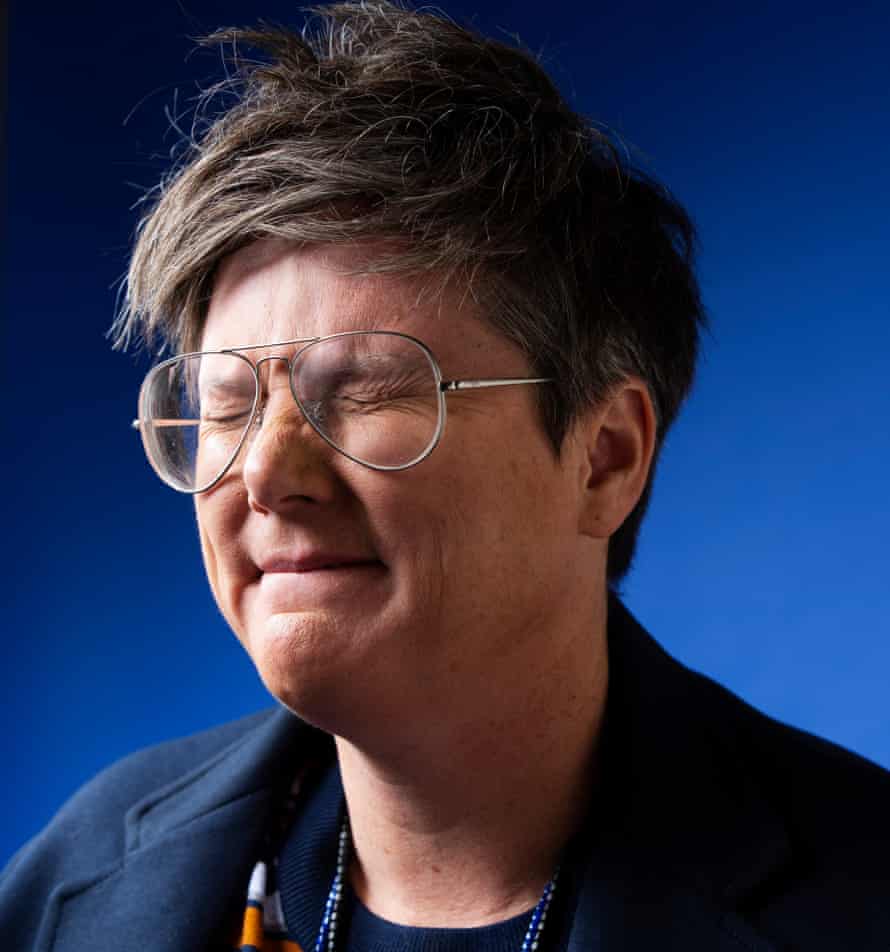
The problem is that communication skills are developed atypically in autistic people and, most often, very slowly. I have always had difficulty articulating my needs, but as I have got older, my language and social skills have improved a great deal. My ability to regulate, however, has not, and nor have my sensory sensitivities. My eternal struggle with these distressing disabilities often gives the impression to others that I am moody, reactive and inconsistent. I say I want one thing, then moments later I will say that I need the opposite. This is not a reflection of my character, but rather a reflection of my neurobiological functioning. I am unable to intuitively understand what I am feeling, and I can often take a much longer time to process the effects of external circumstances than neurotypical thinkers. But it is they who get impatient with me, and under that pressure I feel forced to guess my needs before I have had time to process stuff in my own way, and so mistakes are made. I can be cold and not know it. I can be hungry and not know it. I can need to go to the bathroom and not know it. I can be sad and not know it. I can feel distressed and not know it. I can be unsafe and not know it. You know how sometimes you put your hand under running water and for a brief moment you don’t know if it is hot or cold? That is every minute of my life. Being perpetually potentially unsafe is a great recipe for anxiety. And – spoiler alert – anxiety is bad.
Once I understood that I was always going to have difficulty with self-regulation, I stopped worrying about it. Once I am distressed, my moods are not mine to control, but my environment is. I am always working to remove myself from all the cycles and patterns of hostile environments. I no longer search my behaviours exclusively for revelations about my character; I use my occasions of distress as ways to map the circumstances and environments I move through, and look for ways I can reduce my exposure to distressing situations. I have learned how to advocate for my own experiences instead of being ashamed of my pain and confusion. I stopped worrying about what I was expected to do, and worked on building an understanding of what I could do to make myself feel safe and calm.
There isn’t much about my life that isn’t looked after by another human. I’m basically a middle-class white man from the 1950s
I am not afraid of pressing pause during a television show when I feel distressed. I seek out spoiler alerts to avoid getting panicked by unexpected plot twists. I leave crowded spaces. I switch off discordant music. I wear headphones at restaurants. I openly express my hatred of the saxophone and electric guitar solos. I don’t allow important emotional conversations to take place in cafes with polished concrete floors.
I spend hours alone at home rearranging my little piles of bric-a-brac, because it’s really fun. I only wear blue clothes because blue makes me feel calm. I listen to the same music, watch the same shows, and eat the same foods over and over again without any qualms. I find joy in my life where once I couldn’t because I was too busy trying to do the “right” thing instead of checking in with my own needs first.
I am lucky. I have the privilege to be able to protect myself – now. But it’s not because I can do it on my own. I need help. There is not much about my life that is not looked after by another human, sometimes teams of them. That’s the beauty of success in show business: other people become quite keen to do all the things for you. I am basically a middle-class white man from the 1950s.
‘I broke the contract’: how Hannah Gadsby's trauma transformed comedy
But even if I hadn’t stumbled into success, I would still need a lot of help just to navigate life. It is absolute bullshit that the only way I could access the help I needed was by accidentally activating some kind of exceptional potential I didn’t even know I had until I was nearly 30 years old. Please stop expecting people with autism to be exceptional. It is a basic human right to have average abilities.
Most people who struggle to find stable employment also contend with things like intergenerational poverty and/or trauma, cycles of abuse, mental illness, systemic discrimination, disability or neurological disorders. Not only are these all chronically stressful and traumatic circumstances, they have all been linked to a high incidence of impaired executive function. Welfare systems are not built to be easy for people who are anxious about using the phone, or people who mix up dates. They are not designed for people who are bad at keeping time, filling out forms, or people who can’t easily access all the relevant bank, residential and employment details from the past five years, if they thought to keep that information at all. Welfare systems don’t accommodate transience because welfare systems are not built to be accessible, they are built to be temples of administrative doom, because, apparently, welfare is a treasure that must be protected. Can somebody please do something about that? I am not good enough at organising to be an actual activist. But searching for the connections between the big picture and the little picture is a very ASD thing to do. I am never not cross-referencing the trees with the forests, and it can be a very exhausting way to engage – but I wouldn’t change it for the world, because I believe communities need thinkers like me.
This is an extract from Ten Steps to Nanette by Hannah Gadsby (Atlantic, £20; Allen & Unwin, A$49.99). To support The Guardian and Observer, order your copy at guardianbookshop.com. Delivery charges may apply.
Hannah Gadsby will join actor Emma Thompson for a Guardian Live online event on Monday 4 April.
from https://www.theguardian.com/stage/2022/mar/19/hannah-gadsby-autism-diagnosis-little-out-of-whack
